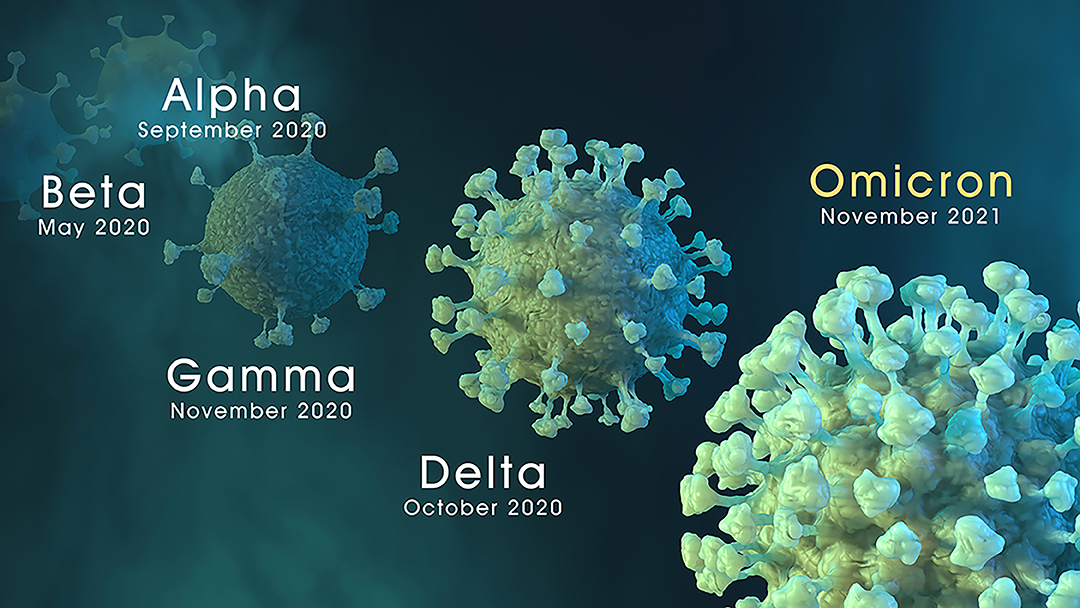Omicron’s Newest Offshoots Drive Rapid, Less Deadly Wave in South Africa
ADF STAFF
As South Africa’s fifth wave of COVID-19 infections winds down, researchers have learned a key lesson from the experience: New sublineages of a variant can drive infections as much as entirely new variants can.
South Africa’s fifth wave, which came and went over the span of a few weeks, was driven by the BA.4 and BA.5 strains of the omicron variant of COVID-19. Botswana and South Africa reported the first strain of omicron in November 2021.
In the months since omicron first appeared, South Africa’s decision to drop virtually all pandemic restrictions allowed omicron to spread through the population. Transmission of COVID-19 leads to new versions as the virus mutates while moving from one host to the next.
BA.4 and BA.5 earned their designations for being the fourth and fifth genetic branches to sprout from the original omicron variant. BA.4 appeared in Limpopo province in January. BA.5 appeared in KwaZulu-Natal province in February.
The two strains spread rapidly through South Africa’s population, going from 1% of tests early in the year to 40% (BA.4) and 20% (BA.5) by the end of April. By the end of May, they combined to account for 90% of test samples. The greatest concentrations were in the populous Guateng and KwaZulu-Natal provinces.
Research has shown that BA.4 and BA.5 have the same mutations in the spike proteins that let the virus “unlock” and infect healthy cells. One of those mutations was also present in the delta variant.
The Africa Centres for Disease Control and Prevention has reported omicron variants in 48 member countries since the beginning of the year.
Even though more than 95% of South Africans have some form of COVID-19 immunity, BA.4 and BA.5 proved capable of overcoming it. Waning immunity could be one reason for the surge in BA.4 and BA.5 infections, according to Houriiya Tegally, a bioinformatician at South Africa’s Centre for Epidemic Response and Innovation and the lead author of a study of the new sublineages.
“Everyone thought that only new variants would cause new waves, but now that we’re seeing that omicron can do it,” Tegally told Nature magazine.
Dr. Katelyn Jetelina, who writes the blog “Your Local Epidemiologist,” has described the shift from the original omicron strain to the current situation where BA.5 and BA.5 dominate “the battle of omicron.”
While South Africa went through the battle earlier this year, other countries including Portugal and the U.S. are engaged in it now, she wrote in her Substack newsletter.
“BA.4/5 are particularly good at escaping antibodies and reinfecting people previously infected with Omicron,” Jetelina wrote.
Due to variations in population immunity levels and public health efforts, the impact of BA.4 and BA.5 could be very different from South Africa’s experience, Jetelina wrote.
In South Africa, BA.4 and BA.5 produced much smaller numbers of infections, hospitalizations and deaths than any previous version of COVID-19. That continued a trend seen since the beta variant appeared late in 2020 — each successive wave has been weaker than the previous one.
That said, studies of omicron have shown it remains as deadly for those with no immunity as any other variant.
Also, BA.4 and BA.5 are about four times more capable than other omicron strains of overcoming the resistance created by either natural or acquired immunity, according to researchers from Columbia University.
“These new Omicron subvariants have been detected worldwide, albeit at low levels presently,” the researchers wrote. “However, their growth trajectories in the U.S. and South Africa indicate a significant transmission advantage that will likely result in further expansion.”


Comments are closed.